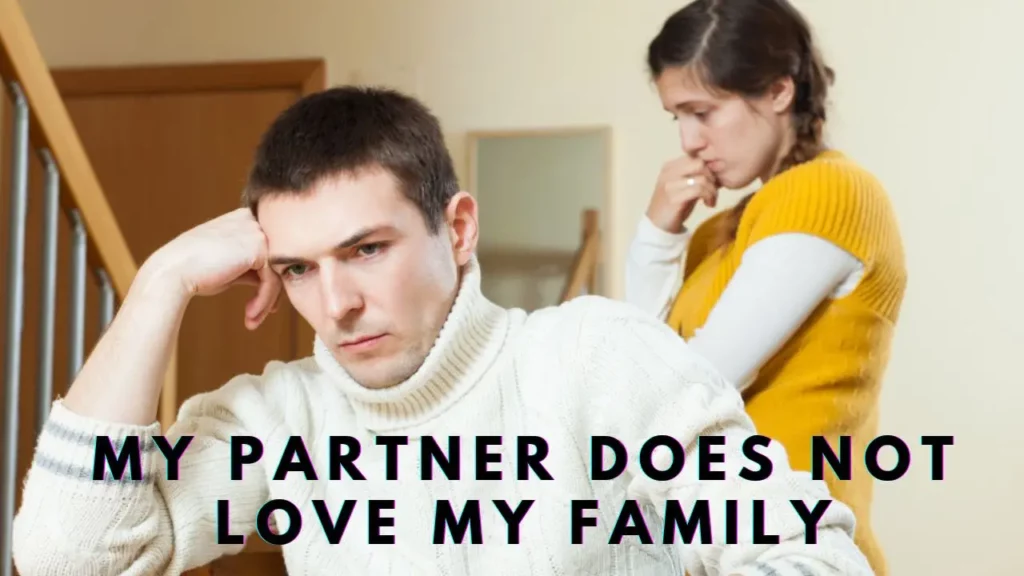One of the main reasons couples break up is the lack of communication: if the couple has problems they cannot talk about, it will be impossible to resolve them.
But how to communicate effectively with your partner to establish a deeper relationship, resolve problems, and avoid misunderstandings?
Let’s see how communication within a couple works, how it can be improved, and the most common mistakes.
Communication in couples: differences between men and women
Men and women have different ways of communicating in many respects, so it is often difficult to communicate.
Let’s see together what the differences are:
- Male language is concrete, while female language is more emotional ;
- Men express themselves more with gestures, using words more for informational purposes, while women love to use words both to court and express their feelings and to imply, interpret, and allude;
- Men and women solve problems and talk about them with each other in different ways: men tend to solve problems on their own and only then talk about them. At the same time, women talk about the problem already when it occurs, as if it was already part of the resolution.
The result is that this difference often generates misunderstandings: for example, the woman may complain that her man did not talk to her about the problem, and he will be convinced that it was not necessary.
What we can often mistake for a partner’s shortcomings are nothing more than different communication styles. However, it is not an absolute rule: exceptions may depend on character and education.
Communication in a couple: when it is effective
Effective communication between the two partners is essential for a stable, long-lasting relationship.
Good communication in a couple is based on trust and respect. It contributes to affection, care for others, and understanding their needs.
Communicating effectively with your partner will allow the couple to understand each other better and live their relationship peacefully.
On the contrary, incorrect communication will give rise to a series of misunderstandings, which, over time, will damage the relationship.
When arguments between a couple always originate from the same problem, it is a sign that that problem has never really been resolved at the root, and this is why sometimes, in arguments, it seems like a broken record.
Sometimes, the difficulty lies in not getting too involved in your own emotions, so much so that you can notice those of your partner.

Communication in the couple: positive characteristics
There are many positive characteristics that good communication between a couple must have:
- active listening: knowing how to listen to others and understand their point of view is fundamental;
- Habit: communication in a couple’s relationship must be a habit and not something that happens only in view of problems;
- Wanting to clarify, not winning: if, during an argument, one partner tries to prevail over the other, he is not winning; in reality, it is a defeat. The real victory will be knowing how to be empathetic and understanding;
- Recognize one’s mistakes: when arguing, everyone believes they are right and the other is wrong. But knowing how to analyze, question, and recognize your mistakes is very important.
- Equally important will be to apologize to the other person after recognizing a mistake;
- Forgive: another fundamental ingredient for a stable couple is knowing how to forgive the other and ask the other for forgiveness when you are in the wrong. Granting our forgiveness does not mean giving in, but it must be sincere forgiveness without rancor;
- Show interest: if your partner is talking, listen to him without interrupting him and without judging him;
- Be clear: our partner cannot read our minds, and although something may seem obvious to us, it does not necessarily mean it is obvious to him/her, too. It will be preferable to express our needs as clearly as possible;
- Discuss: a useful move will be to ask your partner questions to understand his needs and how the relationship can be improved. For example, “What can bother you?” or “How can I make you feel more of my support/understanding/love?” “Is there something in my behavior that makes you sad/offends you/worries you/makes you suffer?”. This will be useful both to improve the relationship and to get to know the other person better, precisely because we cannot read her mind;
- Clarifying questions: ask your partner questions to understand if you have understood correctly what he would like, what made him suffer, or what he is telling you: for example, “Are you saying that…? Did I get it right?”
- Awareness: each of us must ask ourselves how we communicate and what effect our way of communicating has on the other;
- Don’t be afraid to speak: train yourself to express desires, expectations, and needs calmly and calmly, to be trained and not let anger take over your words at the least appropriate moment;
- Speak and discuss: don’t run away from dialogue, and don’t barricade yourself behind silence;
- Express affection and understanding with your body: looks are important to communicate our empathy; nod and maintain eye contact;
- Observe your partner’s reactions: you will learn to recognize what signals your partner shows if he gets angry or annoyed;
- Ask for feedback: to make sure that your behavior suits the other, you can say, “I thought you would like this. Is that so?” Or “Would you like me to behave differently in this situation?”.
Communication in the couple: the main mistakes
Various behaviors can make a couple’s dialogue difficult and lead to nothing more than screaming, crying, and stress without resolving the argument:
- Hypercriticism: approaching a discussion with complaints, criticisms, and accusations is not functional and certainly does not help to show the other our empathy towards him and our willingness to listen to him. It is normal to need an outlet, but the discussion must not have this objective because, in addition to not leading to a resolution, the other person will feel attacked and will not be able to offer you emotional support;
- Generalization: in a discussion, “always” and “never” are often used inappropriately. The other will feel attacked and obliged to defend himself, presenting examples of episodes in which that behavior did not occur. By doing so, the attention will shift from the reason for the discussion away from its resolution;
- Contempt and sarcasm will make the other person feel mocked, making them even more nervous. Although most non-verbal language is involuntary, it will be important to pay attention to it, avoiding a mocking tone of voice, rolling your eyes, making a face;
- Silence and escape: not only do they not resolve the situation, but they make the other person feel alone, helpless, and frustrated. Silence and escape put one wall in front of the other, which is counterproductive. If you feel the need to take a break, cool off, and reflect on your own, it would be better to tell the other person, but also make it clear that you can talk about it again later: this will leave an open door towards the other person;
- Change the subject: moving from one problem to another will not allow you to resolve any of them. On the contrary, it will push the resolution further away. The only result will be to increase confusion and frustration. It’s best to tackle one topic at a time;
- Lack of respect: being able to speak freely with your partner does not mean you have the right to offend him. Education and mutual respect must be maintained despite the nervousness and anger of the moment;
- Not communicating at all: sometimes, we expect our partner to read our thoughts and understand something he needs to do, or that bothers us because it is so obvious that he cannot fail to notice it. What is obvious to us is not so obvious that it is also obvious to others. Indeed, the result will be that we will feel dissatisfied and misunderstood, and our partner will feel confused because he will not understand what we need;
- Not accepting the behavior or choices of the other: even if we do not accept them, we can always at least understand them, also because the other often seeks understanding, not consent, and approval;
- Point out every single mistake: it’s fine to communicate what bothers us, but this doesn’t mean that we have to point out everything to the other person, even the most superficial ones, because we would make the relationship worse.
- Not communicating at the right time: if something about the other has bothered us, it will be better to talk about it immediately rather than talk about it in the future when it has no relevance. The other will feel accused of a fault he does not have.
Communication in couples: learning to communicate effectively
In a solid couple, everyone must feel free to open up to the other and express their problems, perplexities, and concerns without fear of feeling judged.
As we have already said, we often expect others to read our minds and guess our unsatisfied needs, but it is not so easy or obvious.
Communicating better means implementing strategies to make the other willing to listen openly and empathetically. But it will be important that we also have the same attitude.
Suppose the foundations for effective communication are not laid at the beginning of the relationship. In that case, the two partners will find themselves venting uncontrollably in the wake of their negative emotions as they progress.
When we feel that our partner is not meeting our needs, it is normal to feel frustrated, disappointed, anxious, or sad.
The important thing will be our ability to express our feelings, preventing these negative emotions from taking over and starting an argument rather than a calm dialogue.
Often, after an initial moment in which only “us” seems to exist, many couples move away to rediscover their own individuality, ending up no longer having moments of true and profound sharing: when the other does not understand our unsatisfied needs, our problems, and sorrows, trigger emotions of anger, frustration, and disappointment because we feel that the other does not know us enough.
In the beginning, the similarities rather than the differences struck us about each other, which could be seen as an additional stimulus.
Subsequently, when communication problems arise, we distance ourselves. We feel betrayed, deluded, and disappointed by how distant our partner seems to be from us and how different from how we perceived him initially. And you start to feel lonely, even though you have another person beside you.
At this point, the two partners frequently grow together but not together.
Communicating effectively has its difficulties and requires constant attention. Still, if silence and pretending nothing happened in the hope that things will sort themselves out take over, it can lead to the decline of the couple’s relationship.
Communication in the couple: modifying sentences to make it effective
There are phrases that are often repeated within a discussion and which can instead be modified to change the effect they have on the other person: he will be more predisposed to listening and will not make him feel defensive.
Phrases that are often repeated are:
- “you don’t understand me,” “I can’t make you understand me”;
- “you don’t listen to me,” “When I speak, I feel like I’m not being listened to”;
- “I have to do everything alone.” “I feel tired, and I need help. Can we meet?”
- “you never make decisions,” “I would like to make decisions together”;
- “you don’t care about me.” “I feel neglected, and that’s why I feel bad.”
With these small precautions, the sentence will have a different tone and not make the other feel accused.
Furthermore, each of us knows our partner and gradually learns the phrases or attitudes that can annoy or make him displeased or angry.
And so, just as you will know which phrases to avoid, you will also know which ones are more appropriate to achieve a certain result rather than sparking an argument.
It is essential, therefore, to pay attention to the words you say.
Finally, emotions and empathy will help us express what we really feel, listen to what the other feels, and regain trust in our relationship.
Communication in the couple: asking for help
Suppose the communication problems in the couple are so great that the two of them cannot resolve them. In that case, it may be useful to contact a professional who will try to understand your mistakes and help you express yourself to others. Feelings without being interrupted, judged, or rejected.




